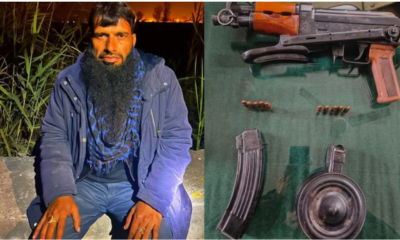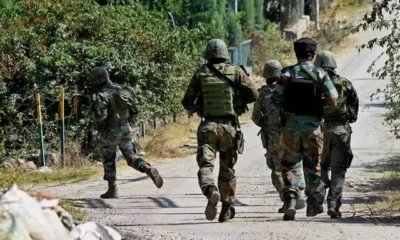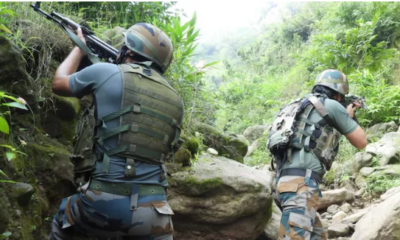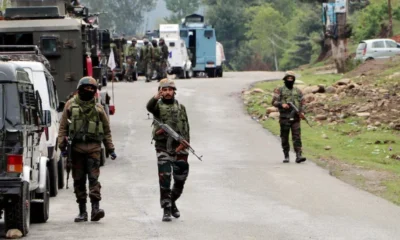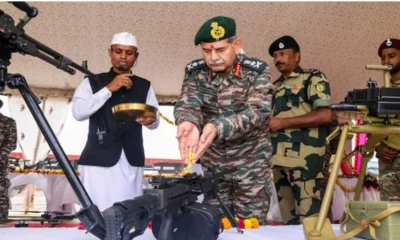In all, 27,862 jawans and officers of central paramilitary forces have taken voluntary retirement and resigned from 2015 till January 31 this year, the numbers growing five-fold since 2015.
The central paramilitary forces include Central Reserve Police Force (CRPF), Border Security Force (BSF), Indo Tibetan Border Police (ITBP), Sashastra Seema Bal (SSB), Central Industrial Security Force (CISF) and Assam Rifles.
According to the latest ministry of home affairs figures, tabled in the Parliament, number of jawans and officers leaving central paramilitary forces for better career opportunities has increased almost five times since 2015.
As compared to 3,422 personnel from these forces resigning or taking voluntary retirement in 2015, in 2017 the number touched 14,587.
The trend was most marked in the two largest forces – CRPF and BSF, which are crucial for border and internal security of the country. BSF, which guards India’s borders with Pakistan and Bangladesh and is also deployed for some internal security tasks, had 11,198 personnel leaving the force since 2015.
In the same period, the CRPF, responsible for law and order duty and fighting extremists in left wing affected states, Jammu and Kashmir and north east, saw 10,620 leaving their jobs.
Despite the government’s claims of working for the welfare of armed forces personnel, the trend shows that maximum number of people have left the service in last two years.
The number of Constables/head constables and other lower staff in CRPF who left the force in 2015 was 1,156 but in 2017, 4,154 jawans decided to leave.
Similarly, while 35 gazetted officers had left CRPF in 2015, 59 such officers left the force last year.
BSF, which was in the middle of a controversy over bad quality food given to jawans as alleged by suspended Constable Tej Bahadur Yadav, is the worst hit when it comes to attrition. Out of 11,198 personnel who left the border guarding force, 5,505 jawans, 839 subordinate officers and 71 gazetted officers resigned or took VRS last year. In 2015, the numbers leaving the force were 741 jawans, 132 subordinate officers and 36 gazetted officers.
In all, 27,862 jawans/officers of central paramilitary forces have taken voluntary retirement and resigned since 2015 till January 31 this year.
The numbers have increased since 2015 every year with almost twice the jawans/officers leaving these forces. In 2016, 8912 total jawans/subordinates/gazetted officers left the central forces while the number reached 14,587 last year.
This year, 744 personnel have already left the service till January 31.
A report in Times of India quoted former CRPF chief K Durga Prasad on the issue: “Life in central paramilitary forces is extremely hard. These boys and girls don’t get time for their families and they are posted in areas with awful living conditions, zero connectivity. You look at CRPF, these men are in left wing affected states with no roads and they travel to a road for months for its construction but it takes 18 months or years for administration to complete the work while men die. They lose their limbs, die every day on the job.”
Prasad said that CAPF personnel work in high stress and don’t get bare minimum facilities.
The report quoted a senior officer as saying that this trend of jawans leaving forces will continue till 2024. He said that a lot of jawans/officers are leaving for better jobs in private sector, like security agencies, companies looking for guards, security advisers. A large number has also left after 2015 because of implementation of 7th pay commission which allows those having served for more than 20 years to go away with increased pension throughout life, said the report quoting an officer.
Minister of State for home Kiren Rijiju said in Parliament that force personnel proceeded on voluntary retirement and resignation “mainly due to various personal and domestic reasons, including children/family issues, health/illness of self or family, social/family obligations and commitments among others.”
“Some personnel also sought voluntary retirement to enjoy a static life as well as pensionary benefits after completing 20 years of service,” said Rijiju.


 Latest world news18 hours ago
Latest world news18 hours ago
 Latest world news18 hours ago
Latest world news18 hours ago
 Latest world news17 hours ago
Latest world news17 hours ago
 India News18 hours ago
India News18 hours ago
 India News9 hours ago
India News9 hours ago
 Latest world news8 hours ago
Latest world news8 hours ago


